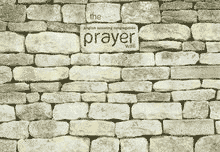William Cowper was a great poet, an evangelical, and a friend of the slave-trader turned pastor, John Newton. It is said that Cowper revolutionized English poetry and letter-writing with his candor about everyday life. Some of his great works include John Gilpin, The Task, his translation of Homer, and his collaboration with Newton on the Olney Hymns. My favourite Cowper hymn was written by him at the end of a severe bout of depression – something that Cowper suffered and struggled with all his life. There is an incredible sense of relief and release in these verses which fills my heart with hope.
There is a fountain filled with blood
There is a fountain filled with blood drawn from Emmanuel’s veins;
And sinners plunged beneath that flood lose all their guilty stains.
Lose all their guilty stains, lose all their guilty stains;
And sinners plunged beneath that flood lose all their guilty stains.
The dying thief rejoiced to see that fountain in his day;
And there have I, though vile as he, washed all my sins away.
Washed all my sins away, washed all my sins away;
And there have I, though vile as he, washed all my sins away.
Dear dying Lamb, Thy precious blood shall never lose its power
Till all the ransomed church of God be saved, to sin no more.
Be saved, to sin no more, be saved, to sin no more;
Till all the ransomed church of God be saved, to sin no more.
E’er since, by faith, I saw the stream Thy flowing wounds supply,
Redeeming love has been my theme, and shall be till I die.
And shall be till I die, and shall be till I die;
Redeeming love has been my theme, and shall be till I die.
Then in a nobler, sweeter song, I’ll sing Thy power to save,
When this poor lisping, stammering tongue lies silent in the grave.
Lies silent in the grave, lies silent in the grave;
When this poor lisping, stammering tongue lies silent in the grave.
Lord, I believe Thou hast prepared, unworthy though I be,
For me a blood bought free reward, a golden harp for me!
’Tis strung and tuned for endless years, and formed by power divine,
To sound in God the Father’s ears no other name but Thine.
by William Cowper, in Conyer’s Collection of Psalms and Hymns, 1772.
skip to main |
skip to sidebar
Blog Archive
- June 2009 (3)
- March 2009 (1)
- February 2009 (1)
- December 2008 (1)
- October 2008 (1)
- September 2008 (2)
- August 2008 (2)
- July 2008 (1)
- June 2008 (2)
- April 2008 (2)
- March 2008 (1)
- November 2007 (3)
- October 2007 (1)
- September 2007 (1)
- May 2007 (3)
- April 2007 (2)
- March 2007 (1)
- February 2007 (1)
- December 2006 (1)
- November 2006 (2)
- September 2006 (1)
- August 2006 (1)
- July 2006 (4)
- June 2006 (1)
- May 2006 (3)
- April 2006 (3)

